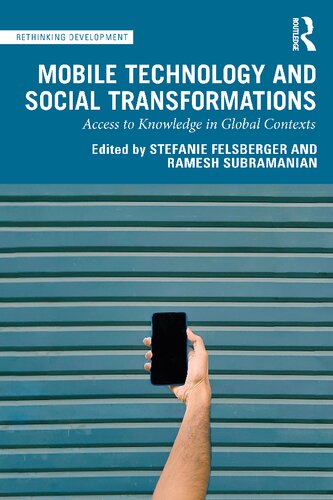

Most ebook files are in PDF format, so you can easily read them using various software such as Foxit Reader or directly on the Google Chrome browser.
Some ebook files are released by publishers in other formats such as .awz, .mobi, .epub, .fb2, etc. You may need to install specific software to read these formats on mobile/PC, such as Calibre.
Please read the tutorial at this link: https://ebookbell.com/faq
We offer FREE conversion to the popular formats you request; however, this may take some time. Therefore, right after payment, please email us, and we will try to provide the service as quickly as possible.
For some exceptional file formats or broken links (if any), please refrain from opening any disputes. Instead, email us first, and we will try to assist within a maximum of 6 hours.
EbookBell Team

4.7
96 reviewsThis book investigates the ways in which the mobile telephone has transformed societies around the world, bringing both opportunities and challenges. At a time when knowledge and truth are increasingly contested, the book asks how mobile technology has changed the ways in which people create, disseminate, and access knowledge.
Worldwide, mobile internet access has surpassed desktop access, and it is estimated that by 2022 there will be AN excess of 6 billion mobile phone users in the world. This widespread proliferation raises all sorts of questions around who creates knowledge, how is that knowledge shared and proliferated, and what are the structural political, economic, and legal conditions in which knowledge is accessed. The practices and power dynamics around mobile technologies are location specific. They look different depending on whether one chooses to highlight the legal, social, political, or economic context. Bringing together scholars, journalists, activists and practitioners from around the world, this book embraces this complexity, providing a multifaceted picture that acknowledges the tensions and contradictions surrounding accessing knowledge through mobile technologies.
With case studies from Hong Kong, South Korea, India, Syria, Egypt, Botswana, Brazil, and the US, this book provides an important account of the changing nature of our access to knowledge, and is key reading for students, researchers, activists and policy makers with an interest in technology and access to knowledge, communication, social transformation, and global development.